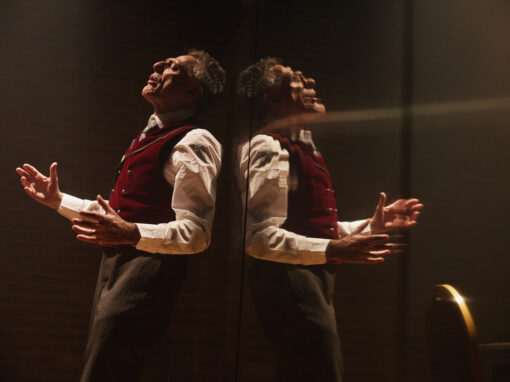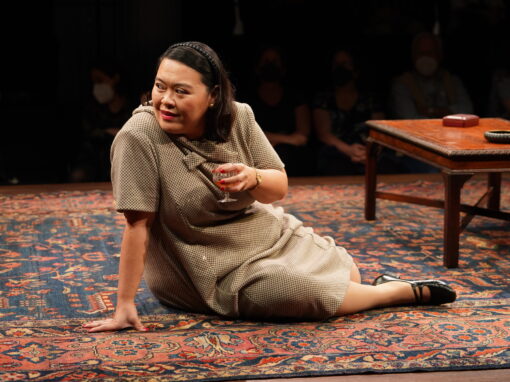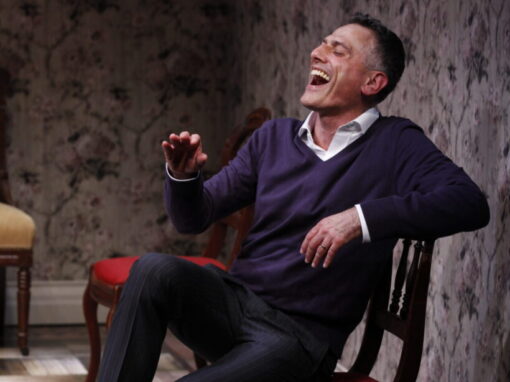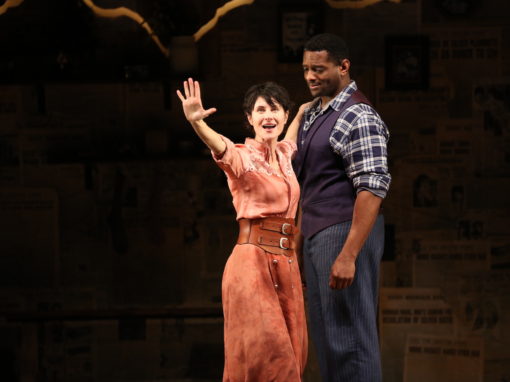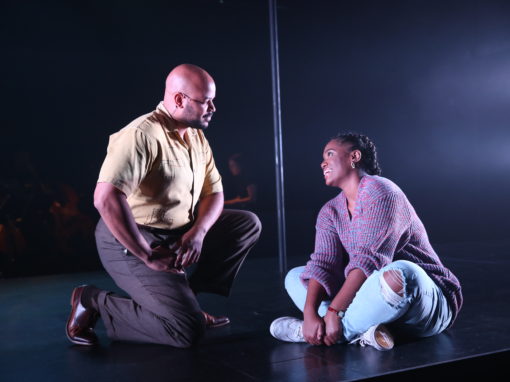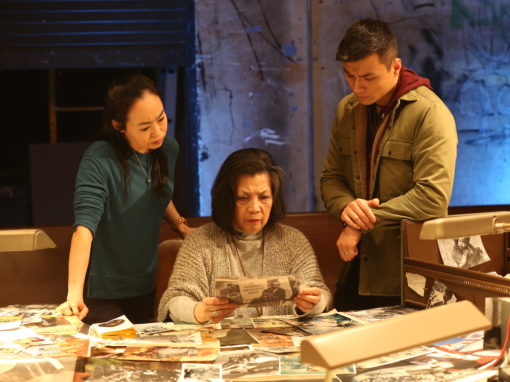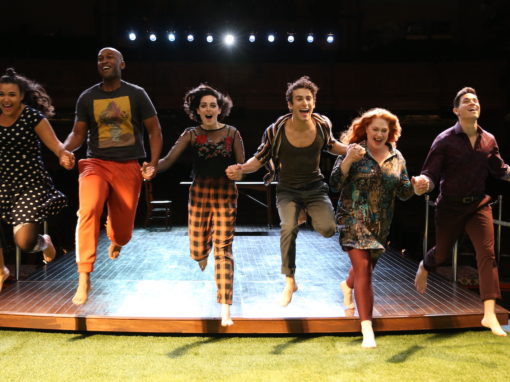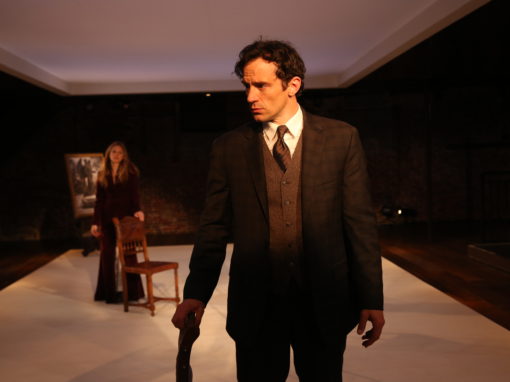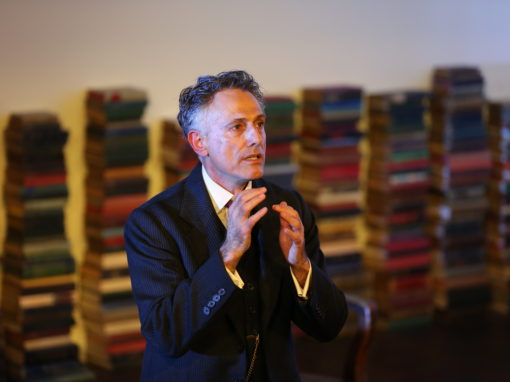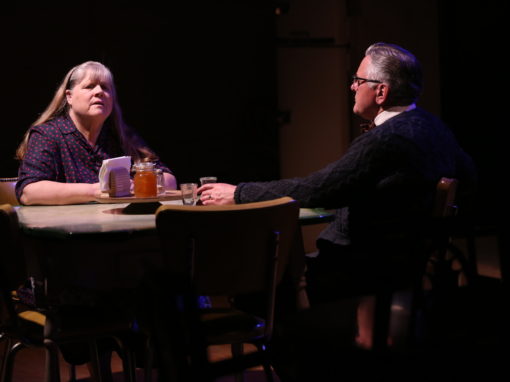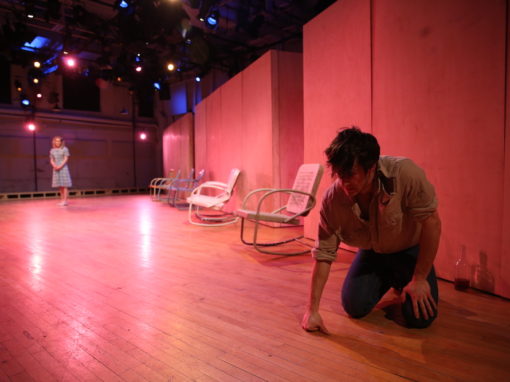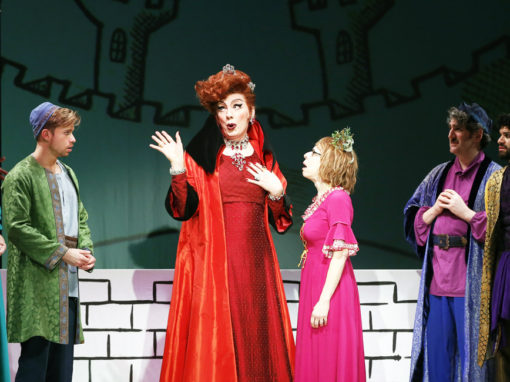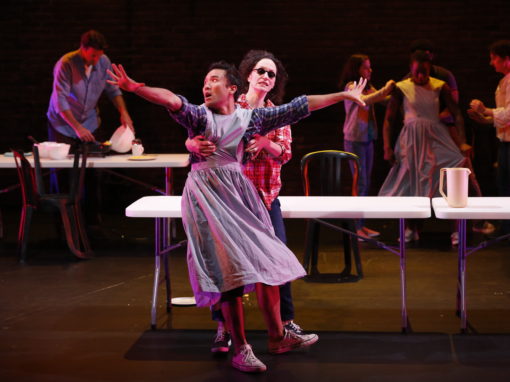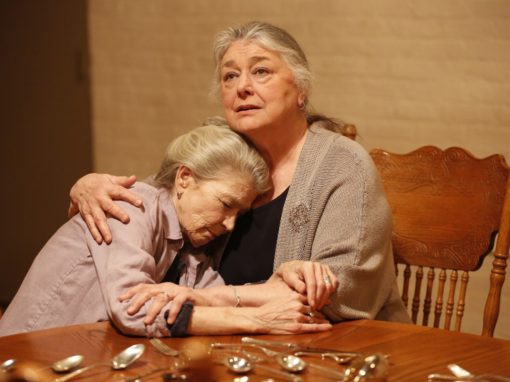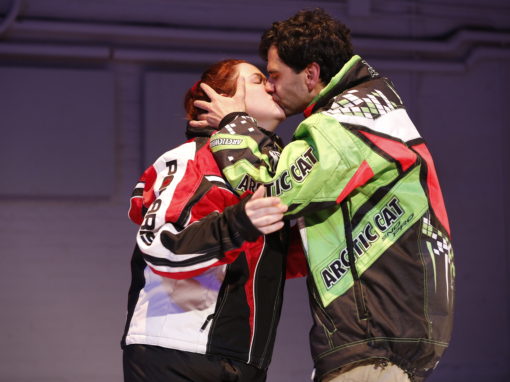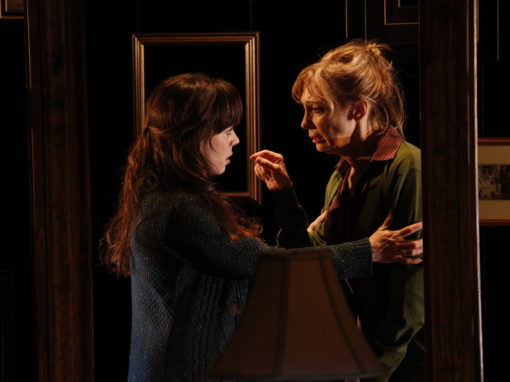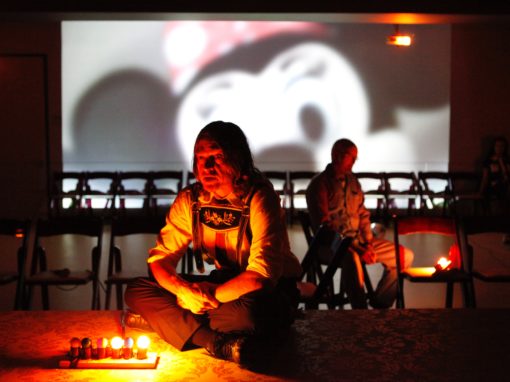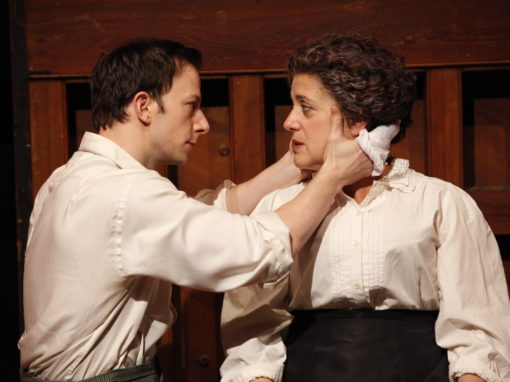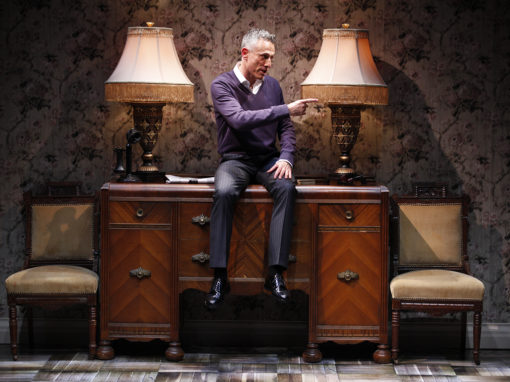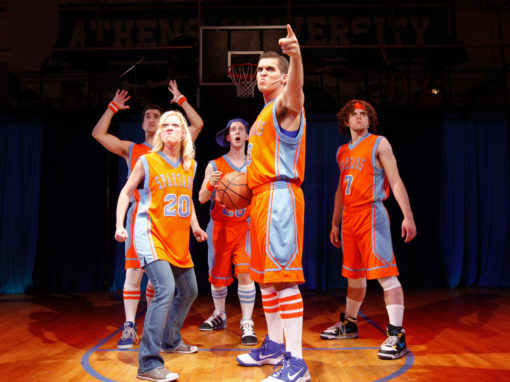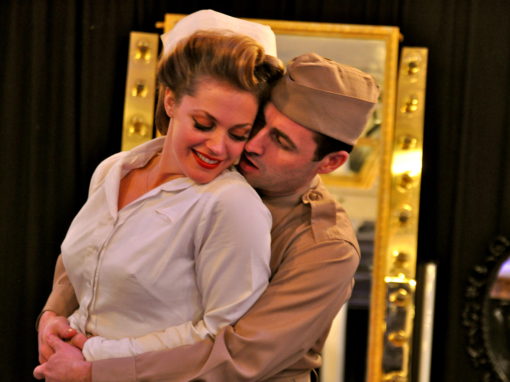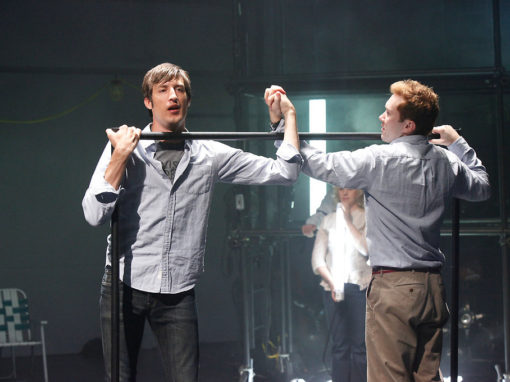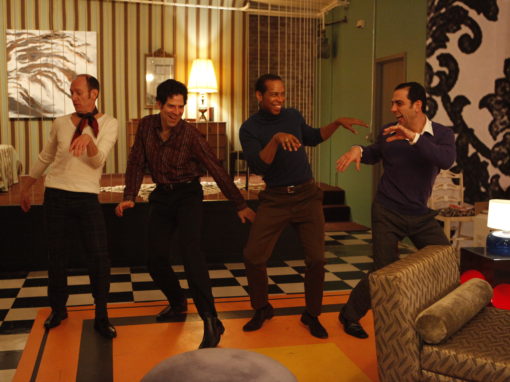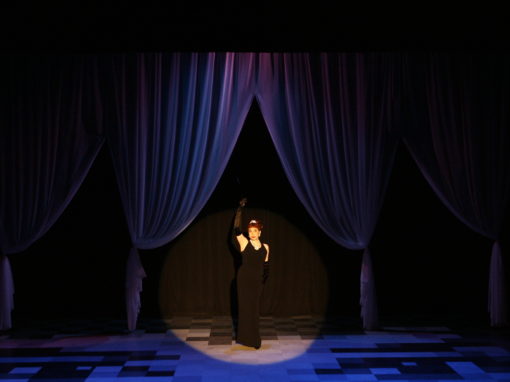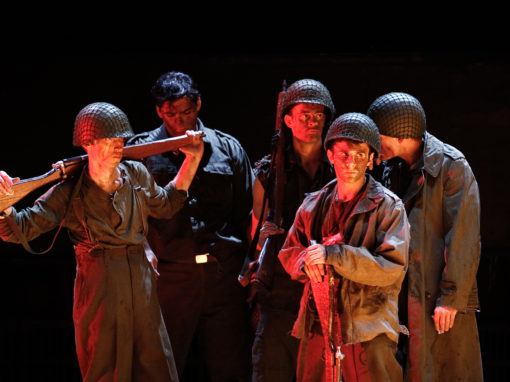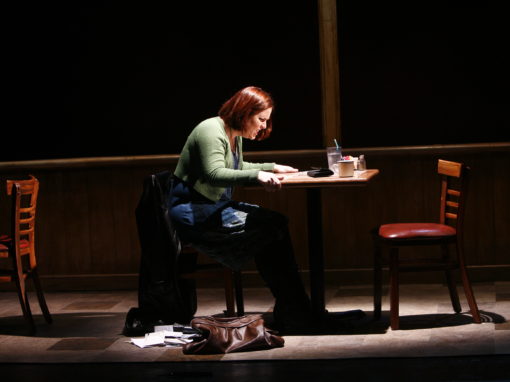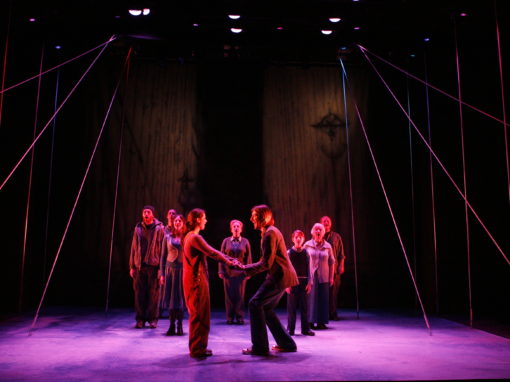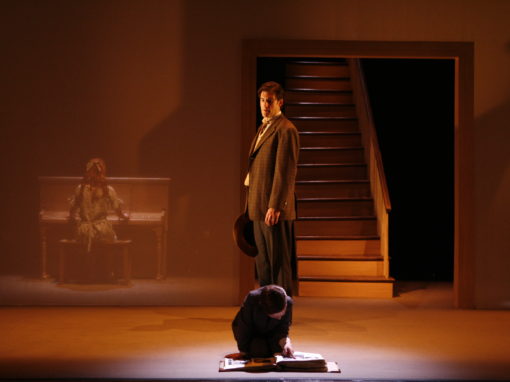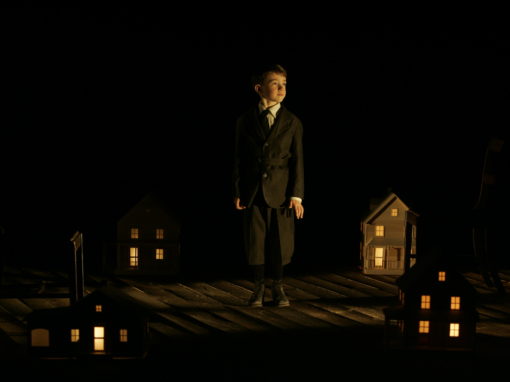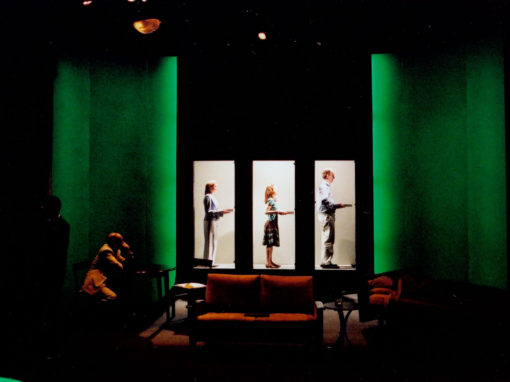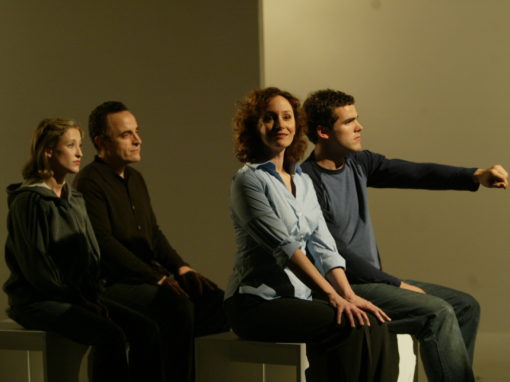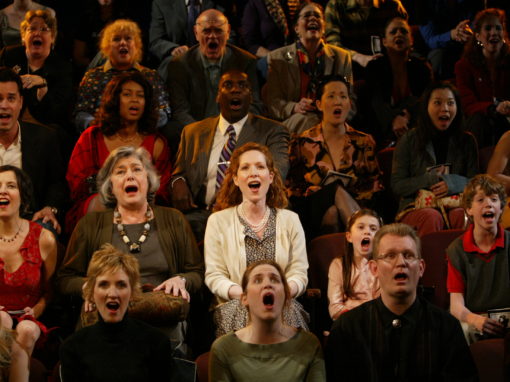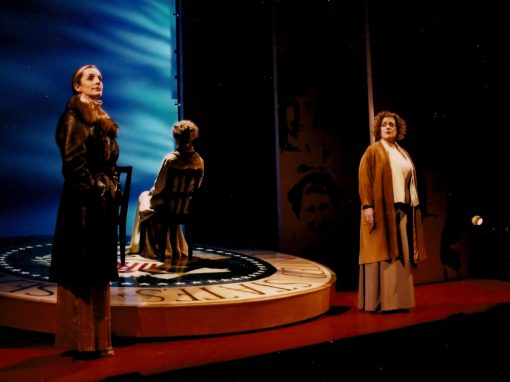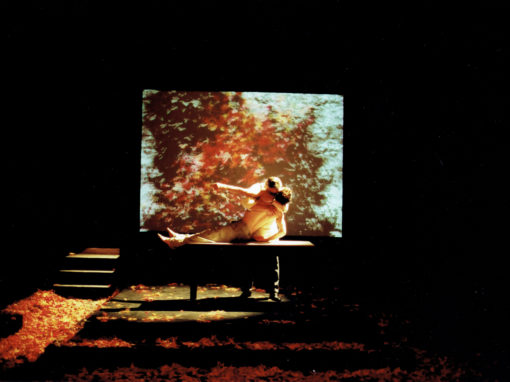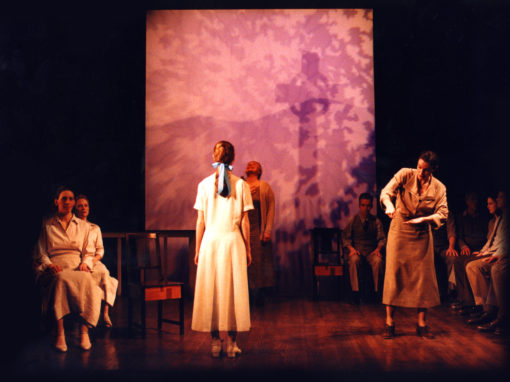What Helen Keller Taught Me // By Zoe Wilson
As a 13-year-old, actor Zoe Wilson feels seen as an artist for the first time in THREE DAYS TO SEE.
In the summer of 2020, my life changed. There was lockdown—the pandemic had us spending every hour of our lives living in enclosed spaces, unable to leave for fear of infection, illness, and death for both ourselves and our loved ones. It introduced the use of masks and new barriers to communication. It reminded me of my mortality, and more difficult to accept, my parents’ mortality. My father, an essential worker, still had to travel outside of the house, and although precautions were taken in the workplace, subways and public areas were still not following strict protocols. Most likely, it happened during a commute, but with the three of us packed into a one bedroom, it was impossible to stop the spread. In March 2020, we all contracted COVID right after the shut down. I had only recently turned eighteen and was faced with the fact that on paper I was an adult, but in reality, I was not…not yet. I didn’t know what I was to do if things took a turn for the worse and my parents were taken like the countless others who were dying everyday. It was severe: high fevers, unbearable weakness, pain, loss of taste and smell, and struggling to breathe. They were both unable to physically make it to the hospital and, frighteningly, being told quite literally not to go to the hospital. We just had to wait. And hope.
Somehow, thank goodness, we all recovered. It was slow, and we were afraid that at some point it would end up being too good to be true, but, each of us, one by one, got stronger and healthier. We started to venture outside once again, took walks, bought a car, partly for the safety of my father’s commute, and partly because of the need for some kind of escape from life as it was in the city. We enjoyed the small things. Things were getting better. They say good things come to those who wait, and for the most part, it seems true, because in June 2020, we finally received news we had been waiting for three years to hear: we were at the top of the list for a two-bedroom apartment, and there happened to be one available. We could move in immediately. And of course, we did.
Moving is something that the Wilson Family Jamboree is expert at. My father, a legend in the art handling/moving world, has it down to a science, and my mother, a woman whose talent, (besides creating and performing), is to keep small New York City apartments as neat as an IKEA display, are the perfect team. We’ve moved four times in my lifetime and every time we are out of the old place and into the new within 24 hours. Needless to say, we are not a sentimental bunch. We have very little memorabilia. A few playbills from shows I’ve been in, reviews from films my mother was in, a stack of baby pictures, and the occasional prop or costume piece from a particularly memorable cinematic or theatrical experience. Our souvenirs are minimal, but it makes what we do keep all the more significant in value.
Moving, although quite an abnormally speedy process, is still just as emotionally charged. We came across collars of our beloved dog Archie, who passed away in May 2017. We came across early drafts of The Pill, a play I have been a part of workshopping for over three years and was brought to the stage in 2019 where it had a run at La MaMa. And finally, at the top of my closet, there was an unlabeled box. The box wasn’t a large box, but it was big enough that for its size, I should have known what was inside. I opened it and out popped a wad of rolled up slabs of paper. I unrolled this mysterious scroll, and as the words became clearer, I realized I had uncovered a treasure. My line notes. More specifically, my Three Days to See line notes. I excitedly read through each one, soaking up the poetry as the memories came flooding back. I rummaged through the box some more, wishing to relive the wonderful life altering summer of 2015. That’s when I saw them. The round frames with the black lens, so dark you can’t see through to the eyes: The Annie Glasses. I slid them on, and was transported.
Three Days to See was my Off-Broadway debut and the production that earned me my Actors’ Equity card. A devised theater piece in which seven actors portrayed Helen Keller. I was the only child alongside a group of adults, different shapes, colors, sizes, heights, ages, genders, and yet equally inhabiting her words, her deepest feelings, and living within her mind for what would ultimately be (shaved down) to 100 minutes. All of us from different backgrounds, yet playing the same person. It was a retelling of Helen Keller’s life through a collection of her own writings produced by Transport Group (performed at New York Theater Workshop). The script was made up of only words Helen (yes we are on a first name basis here) had written herself. It was compiled linearly, starting from the awakening at the water pump (the well known moment from The Miracle Worker), and ending with the famous, titular short essay she wrote, Three Days to See. On the project I not only learned about myself as an actor, but about myself as a person. Being able to read and experience the words of this extraordinary, influential woman, way beyond her time, gave me a new way to look at the world around me. Even at 13, I knew it was something I would never forget.
Funny enough, my obsession with Helen began prior to the production. While many of my friends and peers idolized Hannah Montana and the like, I grew up with a deep admiration for Helen Keller and Anne Frank. In fifth grade I read The Diary of Anne Frank. I watched the movie and lost my voice from sobbing at the ending (even though I knew what was coming from having read the book). I’d fallen in love with the play and (as an early writer myself) became obsessed with this young girl’s writings. This, in turn, led to my discovery of yet another avid female writer, the fascinating historical figure: Helen Keller. I read many of her child geared biographies, and when I finally saw the play, The Miracle Worker, I fell in love with Helen too. Classmates often thought I was weird for being so drawn to these women, long gone and often memorialized as the butt of offensive, inappropriate jokes. Early on, I felt the depth of their words, the poetry of their language, their strength, the feats they accomplished. Even as early as seven, this resonated with me.
Fast forward, May 2015, I received the casting breakdown for Three Days To See. Needless to say, I was elated. I knew in my soul that I needed to be a part of this. I had to play Helen Keller. When I read the passage that was chosen for the audition, I could feel her. I was her, and she was me. But not just me, singularly, in particular, she wasn’t like a character that inhabited my body like so many roles I’d lived in previously—she was a part of me. She became a part of me, and still is to this day. And on May 6, at 2 p.m., I knew my life was forever changed. I got the call that I booked it while in class, and looking back I knew exactly what the call was about and what it meant. I don’t normally bolt out of the classroom to take a call from my manager, but these were special circumstances. I didn’t even know I was crying until a classmate passed by me in the stairwell and rushed over to ask if I was ok. I managed to squeak out that I was fine, but truly I was more than fine, I felt like my life had just begun.
Our rehearsal process was something I’d never imagined I’d have the privilege of being a part of. As a “child actor,” (and I use the term only for the purpose of making this point), people, even colleagues, often only view you as such. At a young age, I found myself having an averse reaction to the term for that very reason. “Child actor” brought to mind connotations and conjured a certain image in the mind of those hearing it spoken. Often negative. Therefore, at a young age I opted for words like “young artist” and “professional performer” to escape the dreaded label of “child actor”. I was not a “child actor” in any sense of the phrase—I was an actor, just as much as I am now, at 19. It was there, in the rehearsal room for Three Days to See, I found a place I didn’t feel the need to prove that. In the room with Jack Cummings III, Marc (de la Cruz), Ito (Aghayere), Chinaza (Uche), Barbara (Walsh), Patrick (Boll), and Theresa (McCarthy), I was part of the team. My voice mattered. At first, it’s daunting to be 13, in a room full of extremely intelligent, multi talented, and widely accomplished adults, but they never made me feel like a “child actor”. I’ll never forget the moment it finally clicked for me. I was delivering one of my lengthy speeches, I believe it was my “Doll Made Out of Towels,” speech in which Patrick and I did a wonderful dance number as I spoke over some jovial, jazzy soundtrack, I believe it was Duke Ellington’s “Satin Doll.” A difficult task indeed, and I was determined, as the youngest actor, to be as close to perfect as possible; however, in the midst of my delivery, Jack said to me, “no Emily Dickinson voice.” This made me pause. I didn’t want to ask questions because I wanted it to seem like I was always on the ball, ready for anything, so I took this in and tried to produce a non-Emily Dickinson voice. Going home that night and replaying the day in my mind, it clicked. Naturally, my voice didn’t sound like the adults I was surrounded by. Unconsciously, I had been putting an affect on my voice to sound more mature, more worldly. Yet, the only thing I needed to do was to, quite simply, feel her words. Being a child didn’t mean I was less of an actor. All that mattered was that I genuinely felt her words and delivered them honestly.
This connection was something I know we all felt, something that bonded us, and only we will ever know the joy of what that felt like. Every night, as different audiences streamed in and out, we were fully aware of what we were asking of them. In a world where attention spans run increasingly short, we were asking them to sit for close to two hours, no intermission, and listen. Not just hear, but really listen, to Helen, to the importance of each syllable. Yes, there was the expected: jingled keys, coughing (which now takes on a new meaning), fidgeting in one’s seat and the old crinkling of wrappers. Also, the unexpected: a few (finding the Helen Keller jokes offensive), walked out, but many stayed, to angrily voice their displeasure at what they deemed ‘hurtful and insulting’ at the talkback. For those who haven’t seen the play, it opens with all seven of us telling rapid fire jokes in which Helen Keller is the punchline. They are at the least, offensive, at most, horrifying. They reduce Helen Keller to a joke. Most hearing and seeing audiences sat quietly (or not so quietly) outraged in their seats, and their outrage was often harbored throughout the rest of the play. I learned all of these reactions to words, to the work, were important. But none more valuable than the night the audience was filled with students from a school for the deaf and blind. This night—this night was different. The students, some of whom could not hear—only watch, some could not see—only hear. Others both. From the first joke to the last, they bellowed, they guffawed, one person screamed with absolute delight. They weren’t laughing at Helen. They were laughing at the absurdity of it—at society, who reduced this brilliant woman to a joke. They had heard these one-liners before (some even told us a few new ones) and immediately saw beyond the jokes (as was the intention). Once we stripped away the famous insults and laid them all out on the table, what was left was Helen, her humanity. This group knew more than anyone of Helen’s value, her humanness, her contributions, they were her. No outrage, only understanding. An audience, one I had worried would not enjoy it as much as the hearing and seeing audiences, had a true appreciation and deep connection to her words. I will never forget how they jumped out of their seats and applauded, or the talkback that night. As we were wrapping up our talk, a few boys around my age waited to speak with me. One boy, who was blind, said he loved my performance, he told me, “I saw so many colors.” At 13, it was (and is now) the highest compliment. He didn’t just enjoy or “love” my performance. He felt it. It changed the way I think about art and performance forever.
Sitting in my room, I could still feel Helen with me. I feel her with me as I write this. I sometimes don’t even realize how much of an impact her words have made on me. You can find her influence everywhere in my life. In my performances, in my careful observation of everything around me, in my love of filmmaking and visual artistry captured and preserved, in my efforts to write work that plays with the senses, like the play I wrote last semester, Blackout, that happens (for the most part) in darkness. But most of all, you can see her reflected in the person I’ve become. Helen and Three Days to See made me the artist, performer, and human being I am today. And even though it’s been six years and I’m now an adult woman with a career and so much more life that I’ve lived, it remains the single most influential experience of my lifetime. As a very wise woman once wrote, “Make the most of every sense; glory in all the facets of pleasure and beauty which the world reveals to you.”
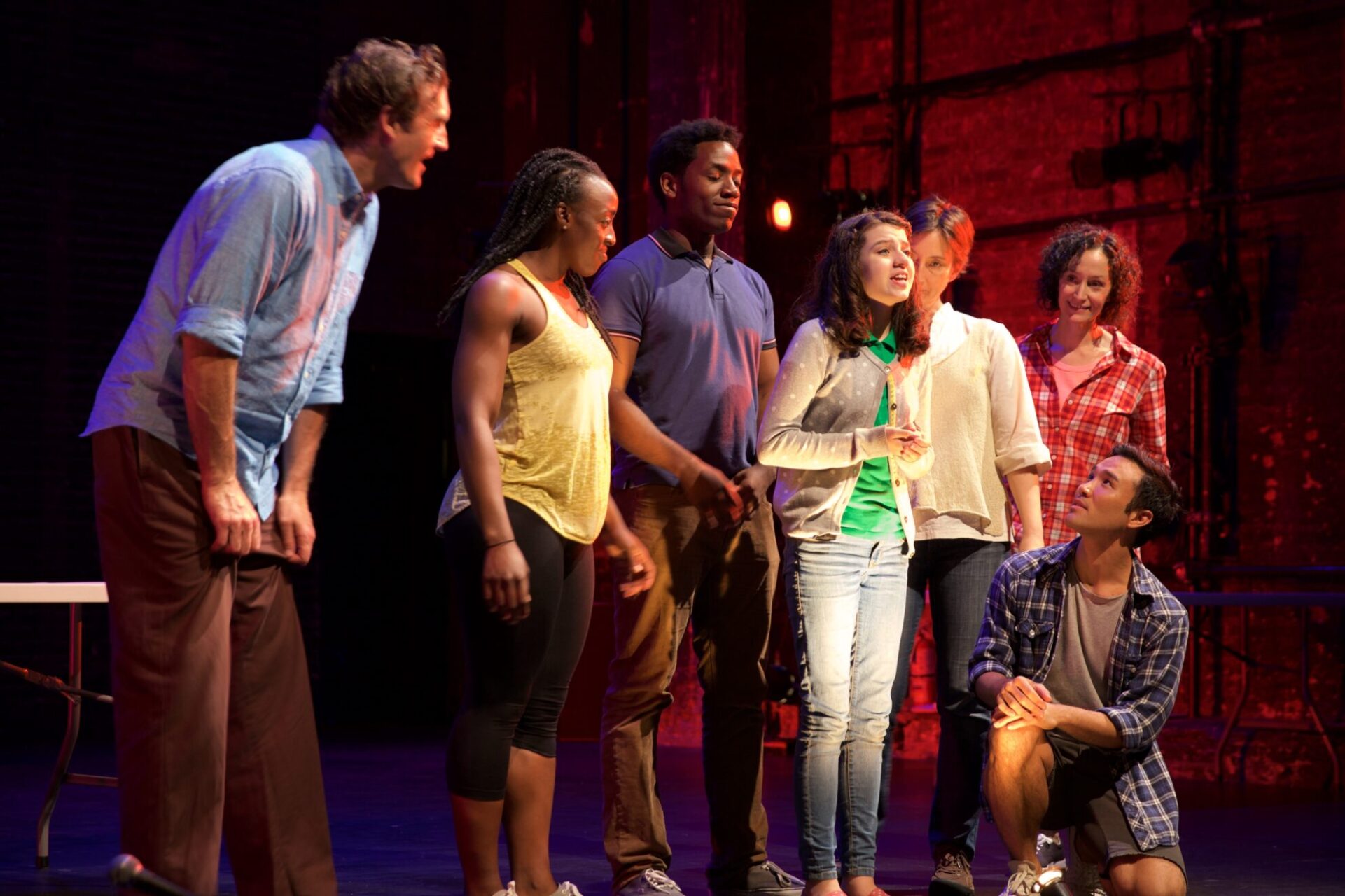
About the author:
Zoe Wilson is an actress, singer, songwriter living in Hell’s Kitchen, NYC. Select Off-Broadway credits include: Three Days to See with Transport Group (earned her Equity Card), Play Like A Winner at The Peter Jay Sharp Theatre as Jenna (2017 winner NYMF Outstanding Individual Performance Award), The Pill at La MaMa, The Opera is Always on the Table at The New Ohio Theatre, Peter Pan in Concert (Transport Group), Eco Village at St. Clements, and Of The Sea at Access Theatre. Select televisions and film credits include: White Effie in Orange is the New Black, My Dinner With Schwartzey (2019 Indie Film Award and 2019 East Hampton Film Festival Award for Best Actress), The Shallow End, Little Boy, and Moshulu Parkway. Zoe is writing this piece on location of her first feature film. She is represented by Lauren Singer Talent, PH Entertainment Group & Innovative Artists. Follow instagram @zoewilsonofficial
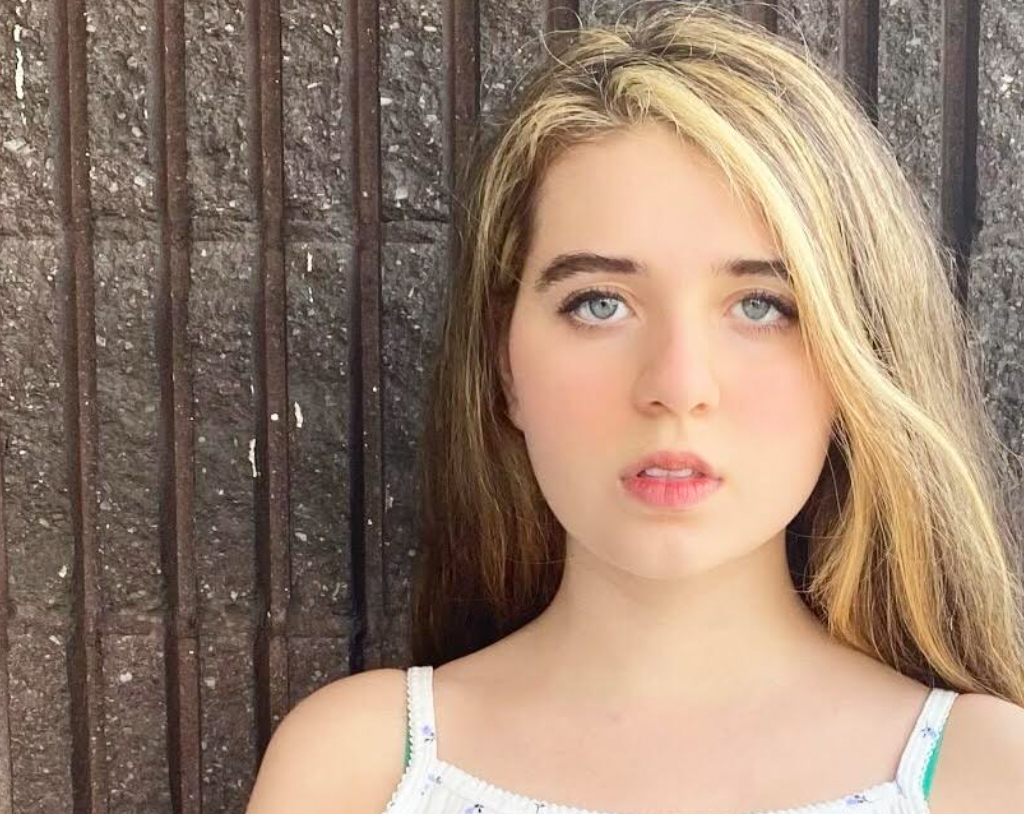
Explore Our Past Shows
